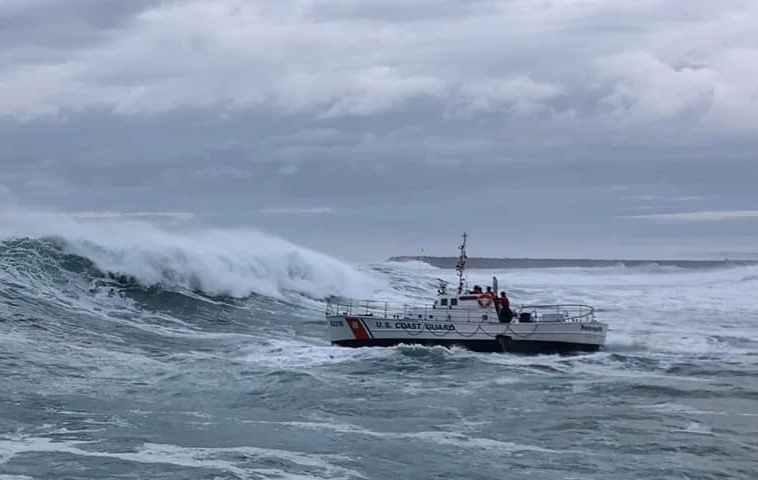January 28, 2020
In a rough Northwest winter, Coast Guard warns on crossing bars

A Coast Guard crew conducting surf training at Coos Bay, Ore. in December 2019. Coast Guard Station Coos Bay photo.
A Coast Guard crew conducting surf training at Coos Bay, Ore. in December 2019. Coast Guard Station Coos Bay photo.